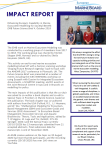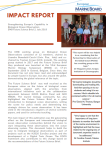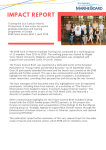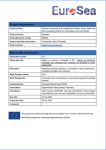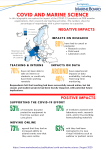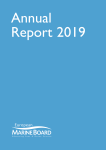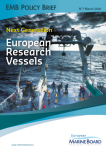EMB publications
This Policy Brief highlights the inextricable links between oceans health and human health. It presents the main challenges in moving towards a European policy framework that supports and enables Oceans and Human Health to be addressed in a holistic manner. It highlights the research, training, data, monitoring and funding needs to enable such a policy framework to be developed. This publication was produced together with the EU-funded SOPHIE project.
This Future Science Brief outlines recent advances, challenges and opportunities for big data to support marine science. To develop solutions to key societal challenges, there is an increasing need for more complex, transdisciplinary analyses across traditionally siloed disciplines and sectors. To achieve these goals, we need to move towards increased digitalization and the adoption of big data in marine science. The publication identifies overarching challenges and recommendations within the categories of data acquisition, data handling and management, service interoperability, computing infrastructures and data accessibility, data sharing, big data analytics, and training networks and collaboration. These are explored through topics and case studies on climate science and marine biogeochemistry, habitat mapping for marine conservation, marine biological observations, and pest control in the aquaculture sector.
This Policy Brief outlines why we need research vessels, noting the multiple roles they play in supporting marine science and ocean observing. It presents an overview of the current European fleet and its capabilities, and highlights the importance of transnational access within this context. It also briefly outlines the concerns around training for vessel crew, marine technicians and shore-based staff. It then presents the main recommendations of EMB Position Paper 25. This publication summarises the main messages and recommendations of the recent EMB Position Paper 25 on “Next Generation European Research Vessels: Current Status and Foreseeable Evolution”, which was produced in collaboration with the European Research Vessel Operators (ERVO) community.
